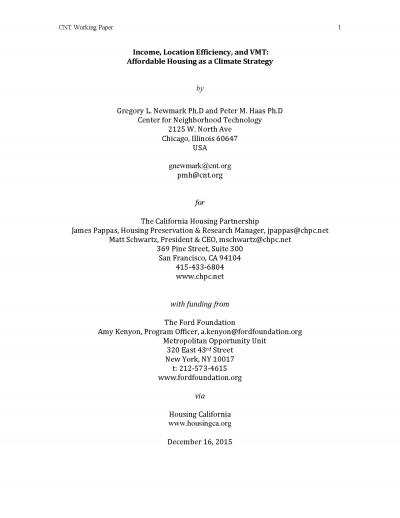This paper combines detailed travel-survey, transit-service, and land-use data to estimate a model for predicting the role of income and location efficiency in reducing household vehicle-miles traveled (VMT). The research then applies this model to census data collected in the most transit-rich areas of California. The research finds strong justification for California’s current support of location-efficient affordable housing as a strategy to reduce VMT and mitigate climate change.
This working paper was first posted in July 2015. The California Strategic Growth Council commissioned an academic review of the paper in order to consider its use in funding formulas for the allocation of cap and trade funds for the Affordable Housing and Sustainable Communities Program. The working paper was revised in response to review comments and reposted on December 16, 2015.





 Strengthening Transit Through Community Partnerships
Strengthening Transit Through Community Partnerships